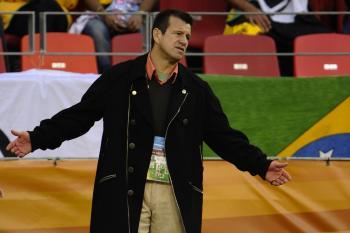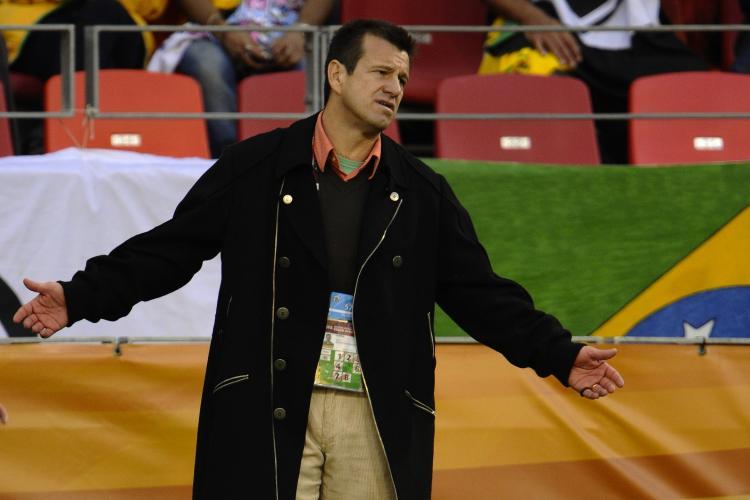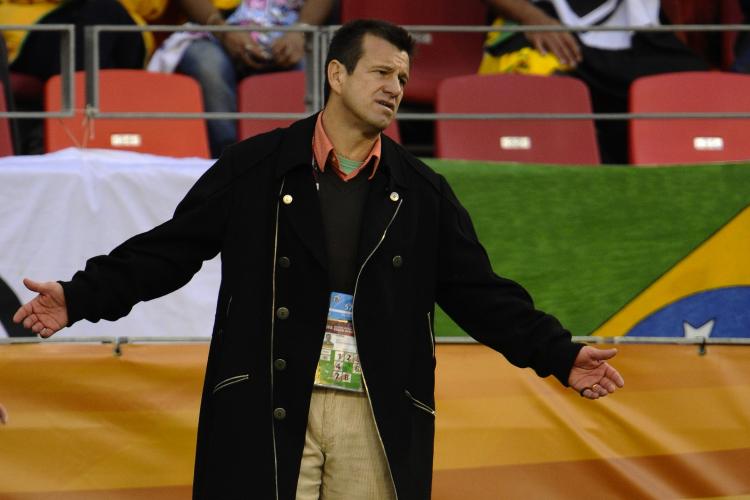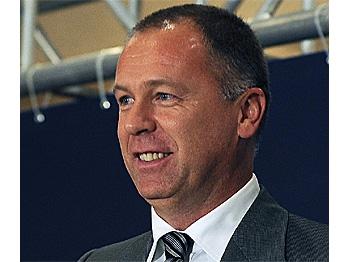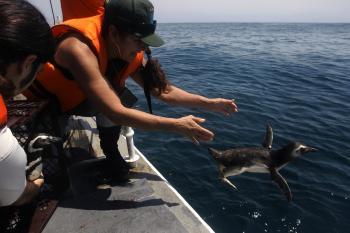RIO DE JANEIRO—Fired last Sunday, shortly after arriving from South Africa, Brazilian head coach Caetano Bledorn Verri, better known as Dunga, leaves with a solid record of two titles (2009 Confederations Cup and 2007 Copa America) heavily overshadowed by a disappointing World Cup.
Brazil was eliminated by Netherlands in the quarterfinals of the World Cup last Friday. They did not improve on 2006’s quarterfinal finish.
“The Technical Commission of the Brazilian selection is dismissed. [A] New Technical Commission will be announced later this month,” read the website of the CBF (Brazilian Football Confederation).
In a letter to CBF’s chairman, Ricardo Teixeira, Dunga thanked him for the opportunity to lead the national team and said that the “past mistakes” (seen in Brazil’s 2006 team) have been corrected during his administration.
“Concerning 2006, we renewed the cast of the Brazil national soccer team. Once again, we are respected on the world scene, and fundamentally, have respect for the Brazilian national soccer team, and by extension, to the very CBF,” wrote former coach Dunga to Teixeira.
The disciplinarian coach who dared to leave out of the team superstars such as Ronaldo and Ronaldinho as a proof that in his team “no one would play on one’s name” was considered by many as being authoritarian and stubborn. But despite the enormous criticism from press and fans, Dunga had the best performance among the Brazil coaches in the last decade.
In 57 games, he racked up 40 wins, 11 draws, and only suffered 6 defeats. A success rate of 76.6 percent, surpassing the 73.2 percent of Carlos Alberto Parreira in his last mandate, and 74.3 percent of 2002 champion Luis Felipe Scolari.
But the numbers didn’t save Dunga. With the frustration of leaving the World Cup early and the dream of the sixth title postponed, the fans seem to have forgotten the victory over the United States in the final of the Confederations Cup (also held in South Africa), as well as the title of Copa America champion, won over rival Argentina in Rosario in 2007.
A representative of CBF confirmed that five names are being worked on to take command of the Brazilian national team. Since Brazil will host the World Cup in 2014, the responsibility the chosen one will shoulder, carrying all the expectations of a nation where soccer is the number one passion will be enormous. The priority is for an experienced coach that works well under pressure.
The perception is that Mano Menezes, Luis Felipe Scolari, Leonardo, Ricardo Gomes, or Muricy Ramalho will assume the post in the next four years.
Scolari has the advantage, as he has the sought profile, and has won a World Cup (2002). However, he has just been hired by Palmeiras, but the club’s president, Luiz Gonzaga Belluzzo, who had primarily refused to share the coach, changed the tone of his speech.
“Palmeiras do not think [sharing the coach with the national team] is convenient, but we can not oppose it so intransigently,” Belluzzo said in an interview with ESPN.
Brazil was eliminated by Netherlands in the quarterfinals of the World Cup last Friday. They did not improve on 2006’s quarterfinal finish.
“The Technical Commission of the Brazilian selection is dismissed. [A] New Technical Commission will be announced later this month,” read the website of the CBF (Brazilian Football Confederation).
In a letter to CBF’s chairman, Ricardo Teixeira, Dunga thanked him for the opportunity to lead the national team and said that the “past mistakes” (seen in Brazil’s 2006 team) have been corrected during his administration.
“Concerning 2006, we renewed the cast of the Brazil national soccer team. Once again, we are respected on the world scene, and fundamentally, have respect for the Brazilian national soccer team, and by extension, to the very CBF,” wrote former coach Dunga to Teixeira.
The disciplinarian coach who dared to leave out of the team superstars such as Ronaldo and Ronaldinho as a proof that in his team “no one would play on one’s name” was considered by many as being authoritarian and stubborn. But despite the enormous criticism from press and fans, Dunga had the best performance among the Brazil coaches in the last decade.
In 57 games, he racked up 40 wins, 11 draws, and only suffered 6 defeats. A success rate of 76.6 percent, surpassing the 73.2 percent of Carlos Alberto Parreira in his last mandate, and 74.3 percent of 2002 champion Luis Felipe Scolari.
But the numbers didn’t save Dunga. With the frustration of leaving the World Cup early and the dream of the sixth title postponed, the fans seem to have forgotten the victory over the United States in the final of the Confederations Cup (also held in South Africa), as well as the title of Copa America champion, won over rival Argentina in Rosario in 2007.
A representative of CBF confirmed that five names are being worked on to take command of the Brazilian national team. Since Brazil will host the World Cup in 2014, the responsibility the chosen one will shoulder, carrying all the expectations of a nation where soccer is the number one passion will be enormous. The priority is for an experienced coach that works well under pressure.
The perception is that Mano Menezes, Luis Felipe Scolari, Leonardo, Ricardo Gomes, or Muricy Ramalho will assume the post in the next four years.
Scolari has the advantage, as he has the sought profile, and has won a World Cup (2002). However, he has just been hired by Palmeiras, but the club’s president, Luiz Gonzaga Belluzzo, who had primarily refused to share the coach, changed the tone of his speech.
“Palmeiras do not think [sharing the coach with the national team] is convenient, but we can not oppose it so intransigently,” Belluzzo said in an interview with ESPN.
